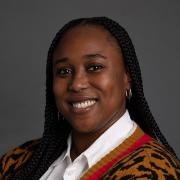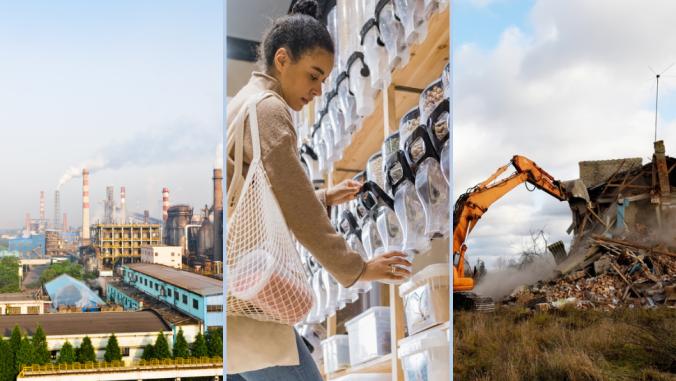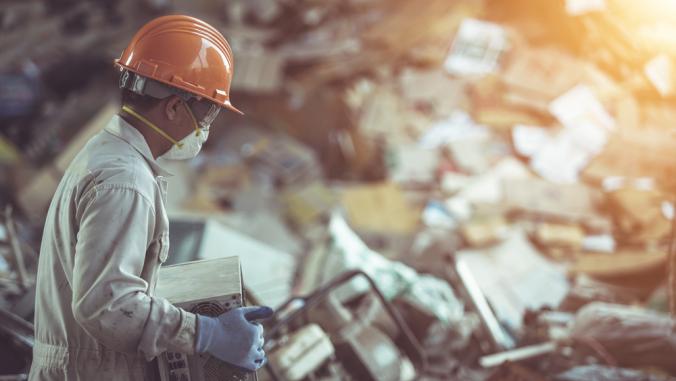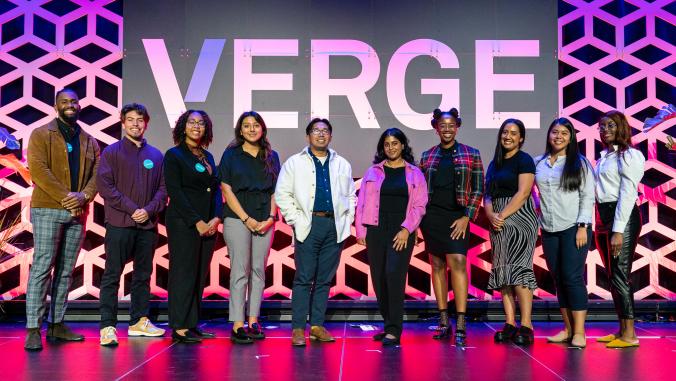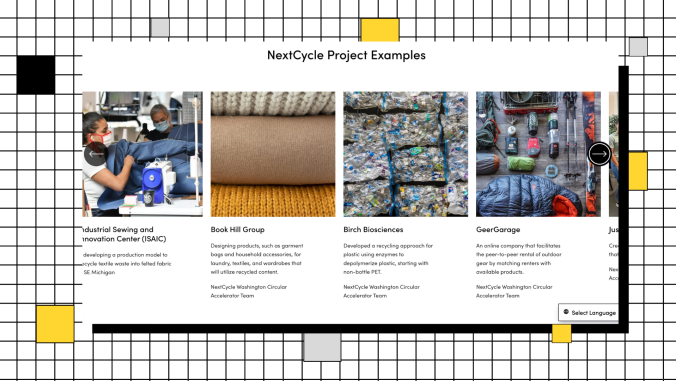To achieve a clean, inclusive economy, we must center the most marginalized
Intentional planning is the only way to create a clean and inclusive economy.

Angela Glover Blackwell, founder in residence with PolicyLink, speaks at VERGE 19.
Isha Clarke, a 16-year-old climate activist and organizer with the group Youth Vs. Apocalypse, challenged business and sustainability leaders to take note of who is working in their offices and sitting at the table when they’re making decisions about communities that experience the most dire impacts of climate change.
"When you're having conversations about things that are impacting communities, do you see anyone from those communities that are in the building?" she asked attendees at GreenBiz Group's annual VERGE 19 conference in Oakland, California.
"If not, then something needs to change. Because if we don't have people who are experiencing this on a day-to-day basis, then we're going to continue to repeat and repeat the same thing over again and we're going to be back exactly where we are right now."
We are currently in a moment where it's essential to make sure that everyone — including those marginalized by race, class, religion and other identities — is included in the transition to a clean economy.
The past offers examples of times when addressing social issues were both inclusive and successful, which led to making the lives of the marginalized and the privileged easier.The sad truth is that the future of the nation is dependent on the very people we have been leaving behind as a nation.
Angela Glover Blackwell, founder in residence at PolicyLink, a research and action institute dedicated to advancing economic and social equity, has called this the "curb-cut effect." Onstage at VERGE 19, she explained that the phenomenon is named after the ramp-like cuts in the sidewalk that allow people in wheelchairs to move freely and without hassle from one side of the street to another. Sidewalks didn’t always have those cuts, but people with disabilities in wheelchairs advocated for the change. Now so many other people — such as those pushing strollers or carts — benefit from the curb cuts.
Now, as many sectors continue to transition to a clean economy, it is pivotal that the needs and voices of those who are most marginalized are centered, especially as communities of color grow and become the majority in the United States.
"What we have to do is [develop] a strategy that makes sure that people who are going to be the future are ready to make that future the bright one that we all hope that it will be," said Blackwell. "The sad truth is that the future of the nation is dependent on the very people we have been leaving behind as a nation."
That is, we’re already behind target. For example, in communities of color the transition toward renewable energy is way behind white communities. While organizations — such as the NAACP and others — have implemented plans that take action to change that, it’s not enough.
In order to make sure that both the planet and the people on it will thrive, Blackwell noted, we have to deal with the toxic inequality that is "hollowing out the middle class, baking in poverty, making economic mobility almost unheard of."
One way to make sure people thrive, which was echoed by numerous speakers and panelists at VERGE 19, is to make sure communities and those who are low-income have access to careers in the clean economy. Workers in clean energy earn higher and more equitable wages when compared to all workers nationally, according to the Brookings Institute’s 2019 Clean Energy Jobs Report.
Because the clean economy involves many sectors and types of jobs — about 320, according to the Brookings Institute report — there is a great deal of opportunity for workers to be a part of it. But these sectors and emerging jobs within them continually do not meet the national benchmarks of labor market inclusion.The sad truth is that the future of the nation is dependent on the very people we have been leaving behind as a nation.
"The workforce needs to look like the population of this country. It should not look like a black-and-white film from WWII," said Ryan Popple, president and CEO of Proterra, an electric transit bus and electric charging system design and manufacturing company, who was on a mainstage panel with Jennifer Granholm, former governor of Michigan, and Katie Fehrenbacher, senior writer and analyst at GreenBiz.
As Granholm noted, to ensure a diverse workforce in the clean economy, businesses need to drop the expectation that workers will show up fully trained and instead work with municipalities to improve their training efforts to support the transition to electric vehicles and the clean economy as a whole.
In order to achieve a clean, inclusive economy, companies, governments and others will have to be intentional from the outset of their plans and do the work to make it so.
"It is time to stop being nostalgic for a time that never was and start accepting a future that is inevitable — and invest in it," Blackwell said. "It is immoral to continue to leave people behind because of their language, their color, their race, their origins, their religion. ... To invest is a moral imperative."
